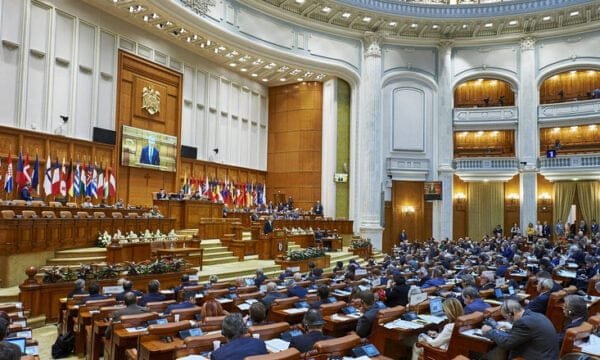The United Nations General Assembly is expected to vote on Thursday to designate a day to commemorate the 1995 genocide, when Bosnian Serbs killed more than 8,000 Bosnian Muslims, a move that has drawn fierce opposition from Serbs, who have fear that it will label all of them as “genocidal” supporters of mass murder.
The resolution drafted by Germany and Rwanda does not name Serbia as the culprit, but that has not stopped an intense campaign against it by Bosnian Serb president Milorad Dodik and the populist president of neighboring Serbia. Aleksandar Vucic.
The 193-member assembly is expected to vote Thursday on a resolution to designate July 11 as the “International Day of Reflection and Remembrance of the 1995 Genocide in Srebrenica,” to be marked annually.
On July 11, 1995, the Bosnian Serbs occupied Srebrenica, which had been declared a safe area protected by the United Nations. They separated at least 8,000 Bosnian Muslim men and boys from their wives, mothers and sisters and killed them. Those who tried to escape were chased through the woods and mountains around the city.
The Srebrenica killings were the bloodiest climax of Bosnia’s 1992-1995 war, which followed the breakup of the former Yugoslavia, fueling nationalist passions and territorial ambitions that pitted Bosnian Serbs against the country’s two other main ethnic populations, the Croats. and Muslim Bosniaks.
Both Serbia and the Bosnian Serbs have denied that genocide took place in Srebrenica, even though this has been confirmed by two UN courts.
Milorad Dodiku, who is president of Republika Srpska, the Serb part of Bosnia that comprises about half of its territory, wrote on social media platform X on Wednesday that the UN resolution is being imposed by supporters of Muslim Bosniaks and that she will to share the country.
“Bosnia and Herzegovina has reached its end, or to be more precise, it was brought there by those who swore for it,” Milorad Dodiku wrote on the X network. “All that remains is for us all to make an effort to be good neighbors. and let us part in peace”.
Milorad Dodiku has often threatened in the past that Serb-controlled territories would secede from Bosnia and join neighboring Serbia. He and several other Bosnian Serb officials are under sanctions from the United States and Britain, in part for jeopardizing a US-backed peace deal that ended the war in Bosnia.
The determination in 2007 by the International Court of Justice, that the acts committed in Srebrenica represent genocide, is part of the draft resolution. This was the first genocide in Europe since the Nazi Holocaust in World War II, which killed an estimated 6 million Jews and members of other minorities.
Germany’s ambassador to the UN, Antje Leendertse, said last week that there is an official UN commemoration of the 1994 Rwandan genocide that has designated April 7 as the day the Hutu-majority government began killing members of the Tutsi minority. and their supporters. The draft resolution aims to “close the gap” by creating a special UN day “to commemorate the victims of Srebrenica”, she said.
Menachem Rosensaft, the son of Holocaust survivors who is a professor at Cornell Law School, told The Associated Press on Wednesday that designating July 11 as the official day of remembrance for the Srebrenica genocide “is a moral and legal requirement.”
The Bosnians killed deserve to be remembered for their deaths and the manner of their deaths in Srebrenica which was supposed to be a safe zone but was abandoned by Dutch UN peacekeepers, leaving the Bosniaks who sought refuge there “to be killed under their eyes of the UN,” said Professor Rosensaft.
Russia and China, which have close ties to Serbia, are virtually certain to oppose the resolution, and Hungary has announced it will vote against it.
Serbian President Vucic and his government have campaigned both at the UN and among developing countries to gain support for a “no” vote. Approval requires a majority of those voting.
Arguing against the resolution, Vucic and Dodik have cited the possibility that it opens the door to paying war damages if passed. Local analysts say Serbian leaders, including Vucic, also fear they could be tried for active participation in Bosnia’s bloodshed.
The draft resolution condemns “without any reservation any denial of the Srebrenica genocide as a historical event”. The document states that the resolution “unreservedly condemns actions that glorify those convicted of war crimes, crimes against humanity and genocide by international courts, including those responsible for the Srebrenica genocide”.







